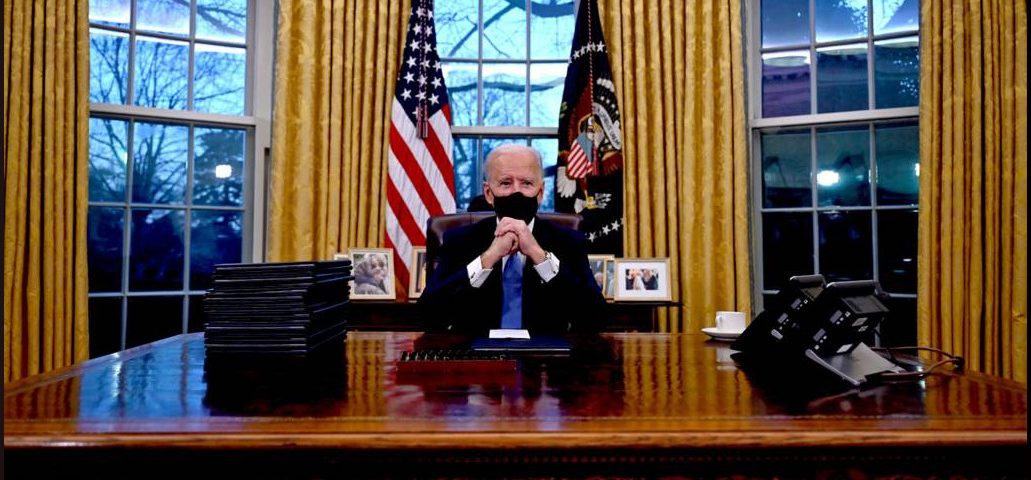Venezuelanalysis, January 21, 2021
– The incoming Joe Biden administration will maintain support for Venezuelan self-proclaimed “Interim President” Juan Guaido.
According to reports, the new Secretary of State Antony Blinken told members of the US Senate that recently inaugurated President Biden will continue to recognize the opposition leader as the country’s legitimate leader.
While the veteran democrat has yet to assume a position on Venezuela since the November election, signs point towards there being no departure from the outgoing Trump administration’s stance.
Former White House Special Envoy for Venezuela Elliott Abrams told the Miami Herald he expected “no major changes” after meeting incoming foreign policy officials, while Guaido’s US representative Carlos Vecchio was a guest at the inauguration.
For his part, Venezuelan President Nicolas Maduro and other high-ranking officials have expressed a desire for improved relations with the US based on “respect and cooperation.”
Concerning policy, Blinken also claimed the Biden administration would look to use unilateral sanctions “more effectively” in its efforts to oust the Maduro government.
The South American nation has been hit with successive rounds of punishing coercive measures by the US Treasury Department, affecting sectors from banking to food imports, with special focus on Venezuela’s oil industry. Washington imposed an oil embargo in January 2019 before levying secondary sanctions, targeting shipping companies and clamping down on swap deals.
One of the Trump administration’s final acts saw the Treasury’s Office of Foreign Assets Control (OFAC) blacklist three individuals, six vessels and 14 companies allegedly involved with Venezuela’s oil sector.
“Those facilitating the illegitimate Maduro regime’s attempts to circumvent United States sanctions contribute to the corruption that consumes Venezuela,”
Treasury Secretary Steve Mnuchin said in a statement.
The sanctioned individuals are Italian national Alessandro Bazzoni, Swiss Philipp Apikian and Spanish-Venezuelan Francisco D’Agostino, who is also the brother-in-law of high profile opposition leader and Guaido ally Henry Ramos Allup.
Geneva-based Swissoil, owned by Apikian, and Malta-based Elemento are the two main companies targeted, with both accused of brokering and assisting in shipments of Venezuelan crude. US sanctions have seen state oil company PDVSA forced to use a network of intermediaries which then reroute cargoes to final customers, most of them in Asia.
The other blacklisted companies are allegedly owned or controlled by Bazzoni, D’Agostino or Elemento. In addition, Liberian-, Cameroonian- and Russian-flagged vessels were sanctioned for having reportedly transported Venezuelan crude in recent months. US citizens and firms are now forbidden from dealing with the designated individuals and entities, which also see any US-based assets where they hold a larger than 50 percent stake blocked.
With the outgoing and incoming administrations tightening the blockade against the Caribbean nation, fuel suppliers, oil companies and aid groups are reportedly looking to press the Biden White House to allow crude-for-diesel swap deals once again.
In the ramp up to the US presidential election, the Trump White House threatened a number of multinational corporations into winding down their Venezuela dealings. The sanctions architecture has shut Caracas out of traditional financial channels, with crude for gasoline or diesel exchanges increasingly relied upon before Washington’s clampdown.
Diesel shortages in particular can have devastating effects on sectors such as agriculture or public transportation, while also affecting electricity generation. PDVSA has restarted some of the country’s refineries with Iranian assistance, but operations have been frequently halted and production is still far from meeting the current demand.
US sanctions have been deemed responsible for tens of thousands of deaths and classified as “collective punishment.” A number of multilateral bodies, including the United Nations, have criticized the measures for their impact on the Venezuelan population, while the Maduro government has filed a lawsuit at the International Criminal Court (ICC), describing sanctions as a “crime against humanity.”
